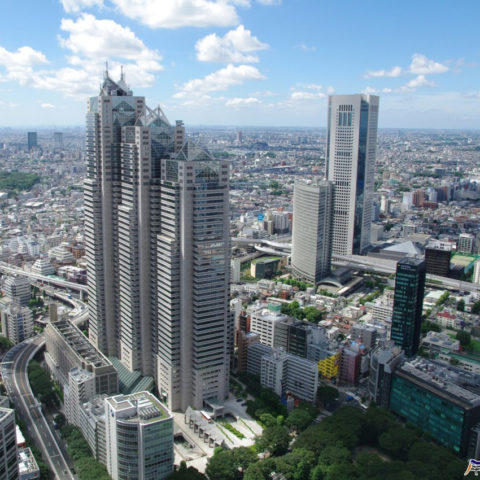Economic Data

Tokyo, Shinjuku
The information provided here is a very short overview. It is recommended to follow the links where indicated and to check the information on Japan’s economy and bilateral, economic relations provided here by the State Secretariat for Economic Affairs (SECO).
Trade and Investment
Foreign Direct Investment
FDI in Switzerland by Japan:
- Capital stocks by ultimate beneficial owner at the end of 2016: CHF 9,362 millions.
- Capital transactions at the end of 2016: CHF -422 millions (= disinvestment).
- There are 209 Japanese subsidiaries basedin Switzerland with a total of 9’388 employees.
FDI in Japan by Switzerland:
- Switzerland is Japan’s seventh largest foreign investor with 1,259 billion yen (11.3 billion CHF) in 2017, making up 4.4% of all FDI stock.
- Switzerland remains the third largest European foreign investor in Japan (after the Netherlands and France).
- Swiss subsidiaries in Japan employ a total of 35‘493 staff.
Trade in Goods (2017)
Exports:
- Swiss merchandise exports to Japan are at CHF 7,467 millions.
- Japan is Switzerland’s sixth largest export market (after the EU, the US, China, India and Hong Kong).
- Swiss exports to Japan accounted for 2.5% of overall Swiss exports (total share of exports to Asia: 22%).
Imports:
- Merchandise imports from Japan to Switzerland are at CHF 5’994.6 millions.
Trade Balance:
- The trade volume is at CHF 13’462 millions, with a trade surplus for Switzerland of chf 1’472.9 millions.
Free Trade Agreement (JSFTEPA)
Switzerland has been the first state in Europe that successfully concluded an FTA with Japan. After eight rounds of negotiations between May 2007 and September 2008, the Japan-Switzerland Free Trade and Economic Partnership Agreement (JSFTEPA) was signed on 19 February 2009, and is now in force since 1 September 2009.
The SJCC has been a strong supporter of the JSFTEPA since the very beginning. In 2006 the chamber commissioned a study on the Relevance and Importance of an Free Trade Agreement Japan-Switzerland from a Japanese Perspectives.
In 2016, the SJCC funded another study to better understand how Swiss exporters can benefit from the FTA. The main findings by Prof. Patrick Ziltener on the actual use of the agreement are the following:
- 88% of Swiss exports are already tariff-free, without utilizing the bilateral FTA in effect, including pharma, almost all machinery, instruments, and watches.
- 6% of Swiss exports are conducted successfully under the FTA, resulting in about 20 million CHF annual savings. The textile and food industries benefit most, especially beverages, dairy products incl. cheese, coffee, chocolate, and certain chemical and plastic products.
- The remaining 6% of Swiss exports are still subject to tariffs (about 11 million CHF paid duties annually). This means there is untapped savings potential, especially for chocolate, food stuffs, and certain organic chemicals.
- The FTA is mainly utilized by car importers. With about 85% of all savings realized, they are the main beneficiaries of the Agreement.
- More than 60% of all imports from Japan, however, do not make use of the FTA. The remaining savings potential is signifi cant (7 million CHF annually), especially for food products, but also metal products, machinery, and vehicles.
Since 2017, the Parliamentary Group Switzerland-Japan and the SJCC emphasise the importance of an update of the JSFTEPA. As a result, a Parliamentary Interpellation has been submitted on 12 December 2017 asking the Federal Council to work towards a review of the JSFTEPA.
In July 2018, after the Free Trade Agreement between the European Union (EU) and Japan was signed, the SJCC reiterated the demand for a renegotiation of the JSFTEPA. The EU-Japan FTA will put Swiss exporters at a disadvantage, and they could face discrimination as early as 2019.
Migration (2018)
- There are 1’656 Swiss nationals living in Japan.
- There are 5’193 Japanese nationals living in Switzerland (Source). The majority of them (67%) are based in Zurich (25,9%), the Geneva/Vaud area (33,2%) or the Basel area (8.1%). The Canton with the largest number of Japanese is Zurich with 1’340.
